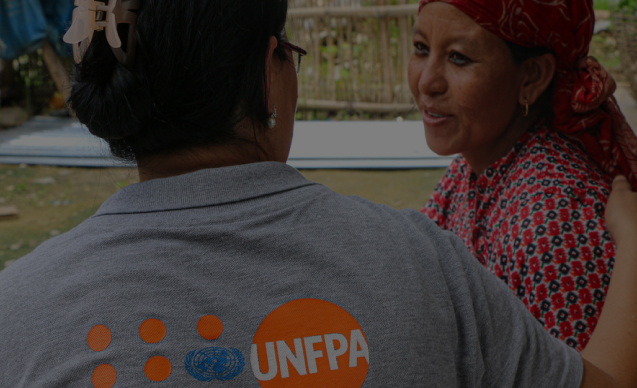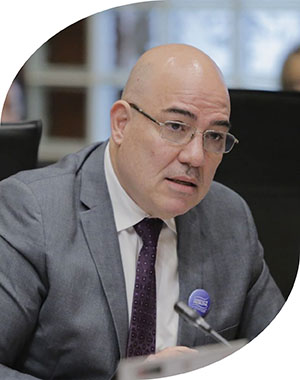UNFPA in Peru
UNFPA is the United Nations agency that works for the rights and freedom of decision of all people, especially those related to their sexual and reproductive rights.
![]()
UNFPA began its activities in Peru in 1972. The Country Program is the cooperation agreement established between UNFPA and the Peruvian State, and is the product of a strategic and participatory prioritization of the most important challenges and needs faced by Peru to ensure that people in vulnerable situations fully exercise their sexual and reproductive rights.
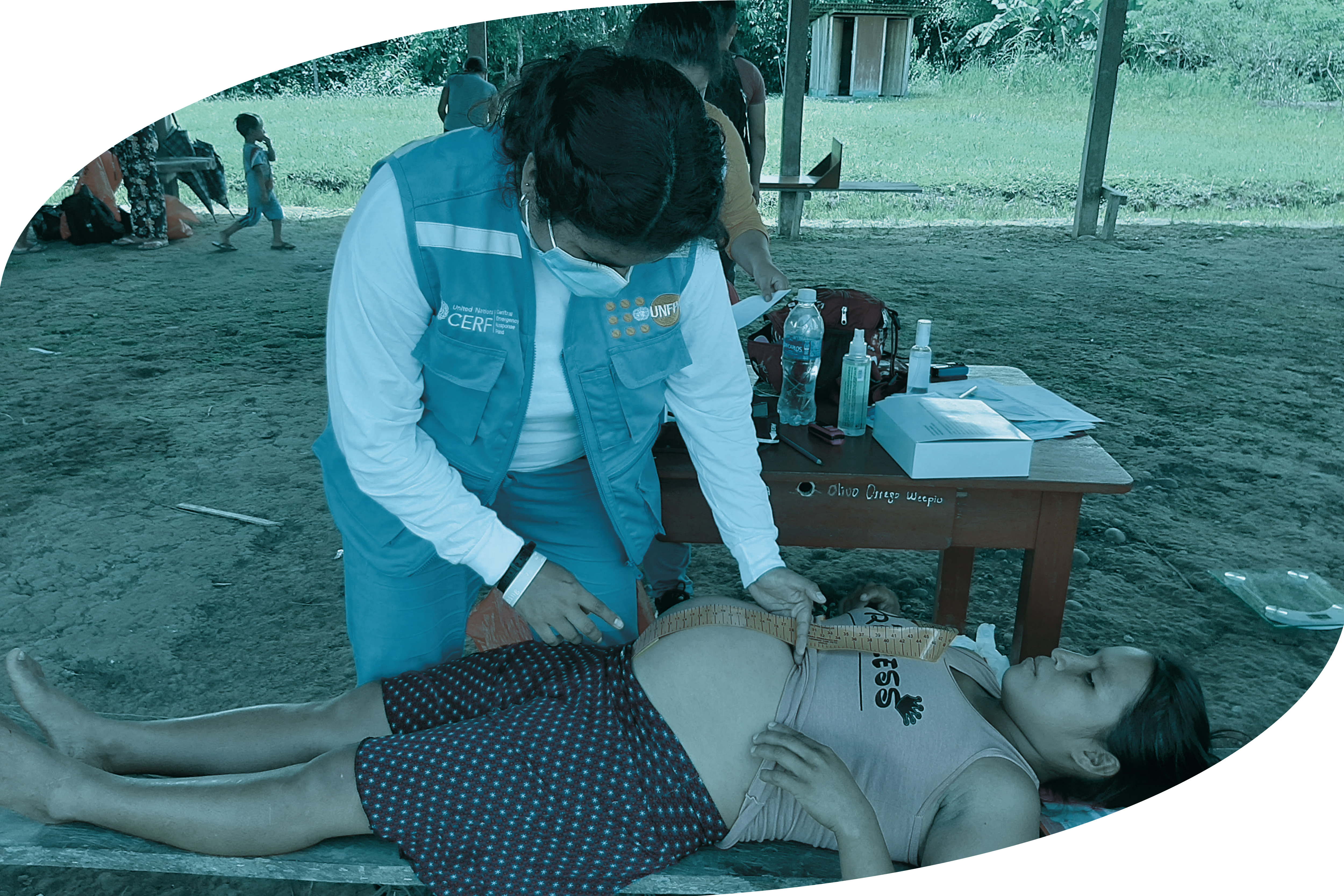
Its goal is to achieve a world where all pregnancies are wanted, all childbirths are safe, and all young people fulfill their potential. Within this framework, by the year 2030, UNFPA has established three transformative results as institutional priorities that guide the technical and financial assistance it provides in the country. These thematic objectives, fully aligned with the dimensions of people, prosperity, sustainability, peace, and partnerships of the 2030 Agenda for Sustainable Development, are as follows: (1) ending unmet need for family planning; (2) ending preventable maternal deaths; and (3) Ending gender-based violence and all harmful practices, including female genital mutilation and early and forced child marriage.

Through these transformative outcomes, the organization seeks to contribute to the better exercise of the sexual and reproductive rights of women and girls, achieve the full potential of adolescents, ensure the bodily autonomy of girls and women throughout the life course, transform gender norms, ensure access to quality sexual and reproductive health and violence prevention and care services, contribute to the provision of comprehensive sexuality education programs, and generate evidence and data in all areas of its mandate.

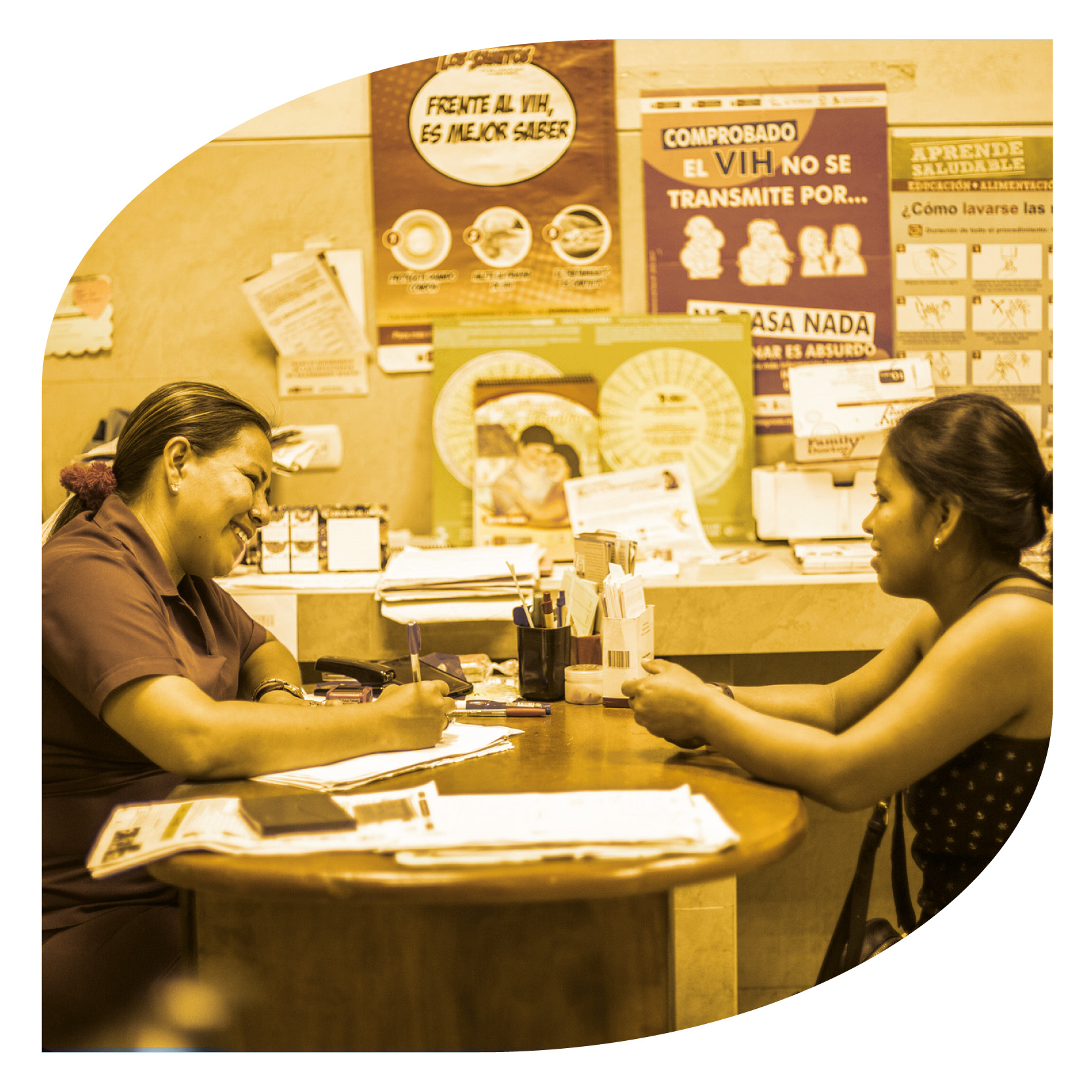 Family planning is fundamental to women's empowerment and sustainable development. However, in Peru, there is low use of modern contraceptive methods: only 56.6% of unmarried or married women use modern contraceptive methods, far below the regional average (70%). The use of traditional methods is also among the highest in the region.
Family planning is fundamental to women's empowerment and sustainable development. However, in Peru, there is low use of modern contraceptive methods: only 56.6% of unmarried or married women use modern contraceptive methods, far below the regional average (70%). The use of traditional methods is also among the highest in the region.
UNFPA collaborates and is committed to working with governments and partners to promote universal access to quality integrated sexual and reproductive health services and to defend the right of individuals to decide freely when and how many children to have. UNFPA also promotes comprehensive sexuality education and youth leadership as they empower adolescents and young people to exercise bodily autonomy, informed decision-making and free choice, participating in their health care and fully exercising their sexual and reproductive rights.
In the last decade, the unmet need for family planning in unmarried women has decreased from 6.9% in 2010 to 5.9% in 2022, however, there are large disparities within the country, being higher among women in rural areas (6.2%), without education (7.3%), who speak a native language (7.7%) and those living in the departments of the Amazon, border areas and the highlands (Demographic and Family Health Survey - ENDES, 2022).

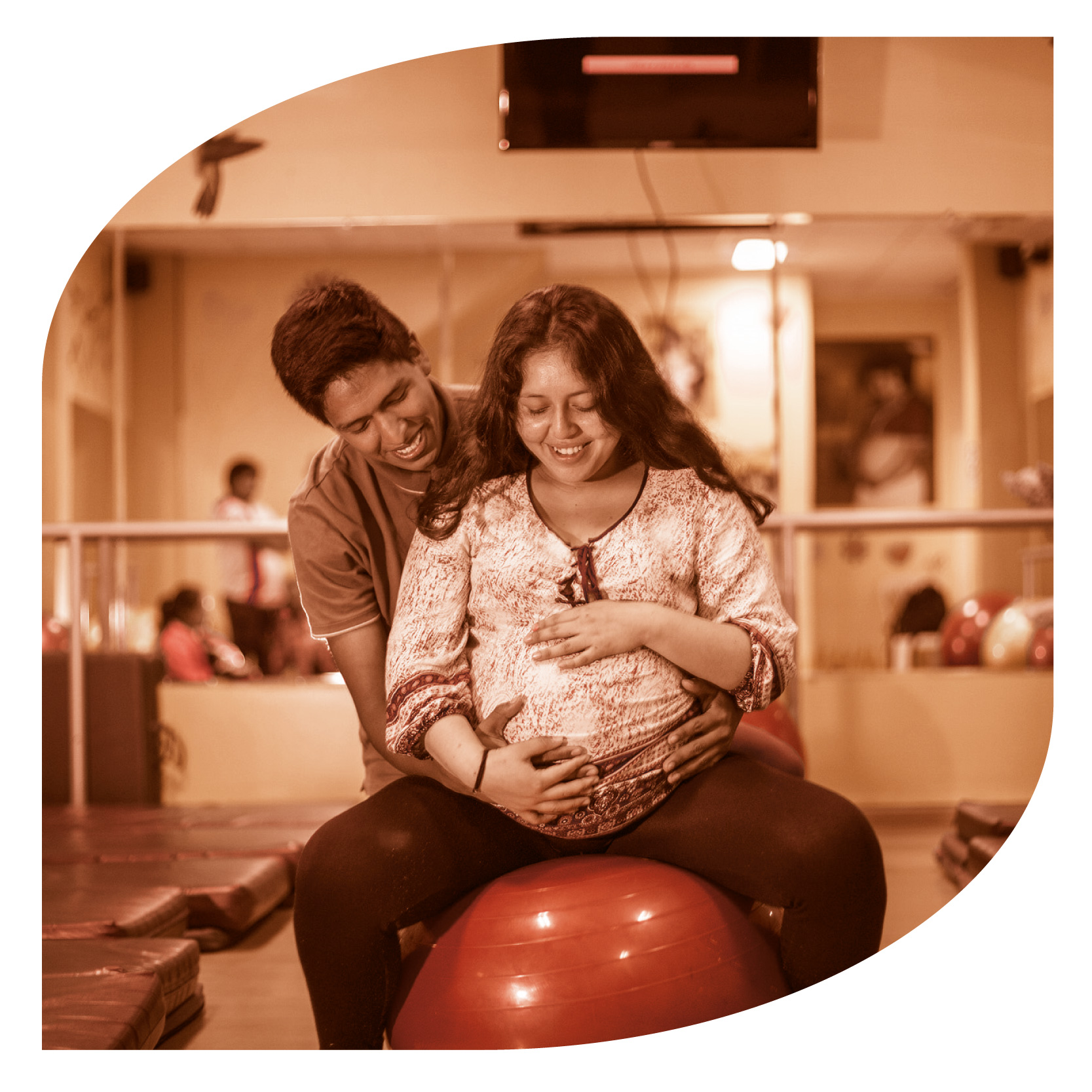 Everyone has the right to health, including women and mothers. Despite this, there are still many women who die in childbirth from preventable causes. 2022 would be the year with the lowest number of maternal deaths in Peru's history, with 291 maternal deaths recorded, 40% less than in 2021. However, if the Maternal Mortality Ratio indicator is used, it is almost double the Sustainable Development Goal 3 target set for 2030.
Everyone has the right to health, including women and mothers. Despite this, there are still many women who die in childbirth from preventable causes. 2022 would be the year with the lowest number of maternal deaths in Peru's history, with 291 maternal deaths recorded, 40% less than in 2021. However, if the Maternal Mortality Ratio indicator is used, it is almost double the Sustainable Development Goal 3 target set for 2030.
UNFPA partners with governments and others to strengthen health systems, build the competencies of health providers, train health workers, educate midwives, and improve access to comprehensive reproductive health by prioritizing cross-cultural relevance in interventions.

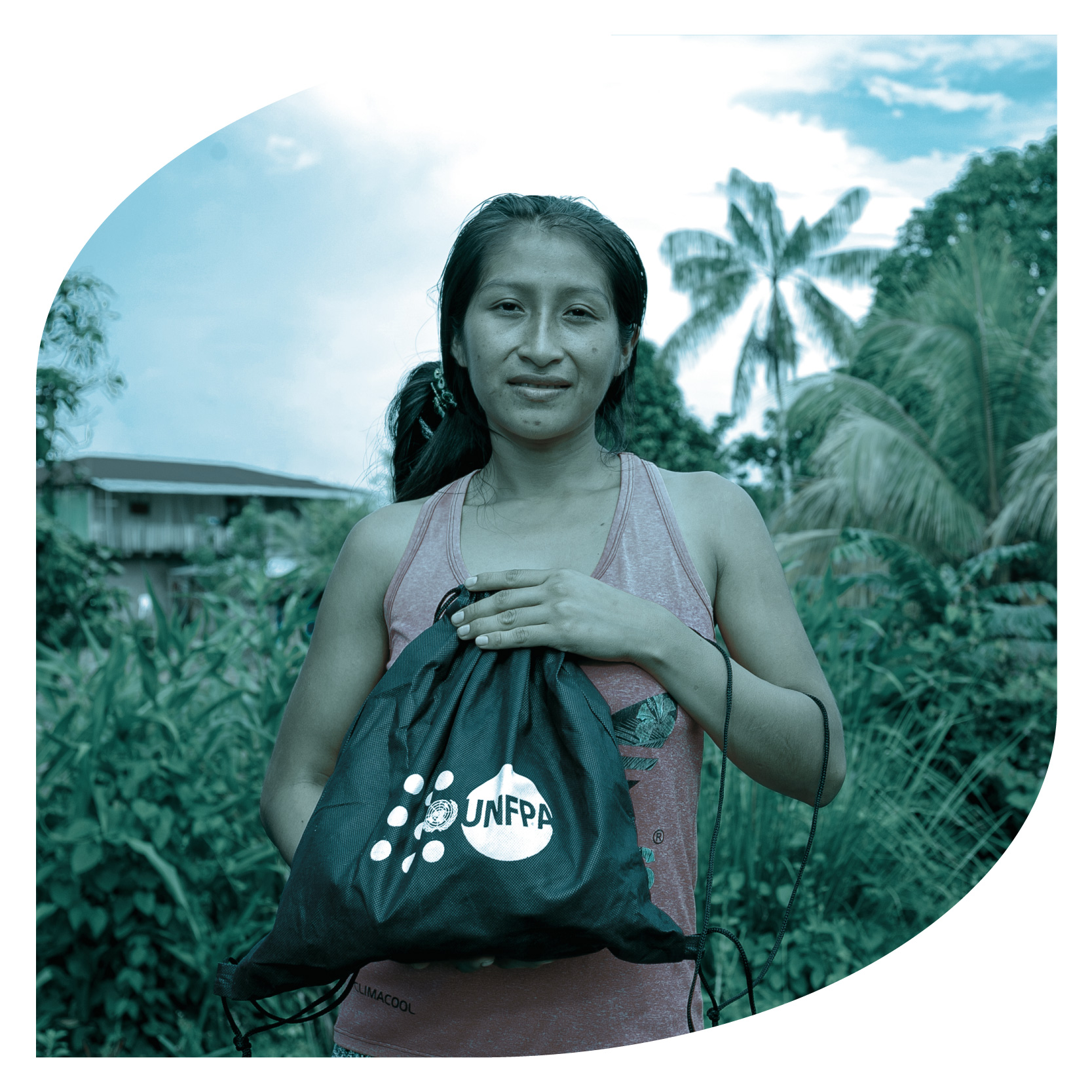 The eradication of gender-based violence is an indispensable prerequisite for advancing gender equality. Gender violence seriously affects women's bodily autonomy and seriously limits their life plans, affecting their rights to health (physical, sexual, reproductive and mental), dignity, freedom and other fundamental rights.
The eradication of gender-based violence is an indispensable prerequisite for advancing gender equality. Gender violence seriously affects women's bodily autonomy and seriously limits their life plans, affecting their rights to health (physical, sexual, reproductive and mental), dignity, freedom and other fundamental rights.
Unfortunately, in Peru, GBV is a widespread and generalized practice that affects a large number of women, adolescents and girls. 6 out of 10 women between the ages of 15 and 49 have been victims of physical, sexual or psychological violence by their partners at least once in their lives. In turn, every year, almost 5,000 minors between the ages of 10 and 15 become mothers as a result of the sexual violence of which they are victims. However, a very small percentage of survivors of violence go to institutions to seek help (ENDES 2022).
UNFPA works to prevent and respond to gender-based violence through its work with institutions with competencies in this area, seeking to advance in the approval of policies and services aimed at ensuring justice, protection and well-being for GBV survivors, based on the implementation of a multisectoral, articulated response with an intercultural rights and intersectional approach. UNFPA also focuses on the elimination of harmful cultural practices with emphasis on child unions and marriages and female genital mutilation, and works with men and boys in the construction of masculinities free of violence, involving them in the promotion of gender equality.
The first 50 years in Peru (1972 - 2022)



